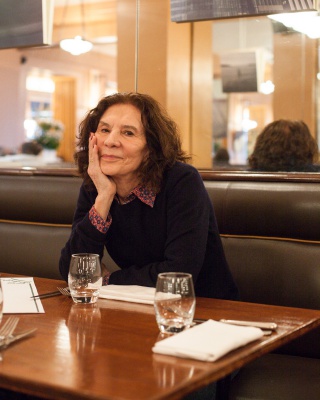 Saïdeh Pakravan's "Azadi"
Saïdeh Pakravan's "Azadi" The new novel of an Iranian of origins, but French by heart and head
Of Iranian origin, Saïdeh Pakravan is the author of "Azadi", that she wrote in English then translated herself. Between several cultures, the writer always returns to France, and to the French language, that nurtured her childhood.
"Azidi" is a tribute to freedom in today's Iran.
Novels, poems, short stories, essays and articles: Saïdeh Pakravan writes since she's six years old. In the United States, she regularly publishes in English on blogs and journals. But she published her first novel, "Azadi", in France.
When Céline Thoulouze, editorial director of éditions Belfond, got the manuscript of "Azadi", it was love at first sight. This breathtaking novel follows Raha, Kian and Hossein, three young Iranians whose fates cross each other during the Green Revolution of June 2009. In Persian, "Azadi" means "Freedom": it's the name of the square where the protesters gathered. For Raha, as for other protesters of the square, the quest for freedom will have a bitter taste.
French language, a family affair
As a representation of modern Iran, "Azadi" was first written in English. The author first tried without success to publish it in the US, before translating it herself and find publishers in France. With Saïdeh Pakravan, come and goes is not only a trademark: they belong to her personal background.
French is the language of childhood. "My Iranian family was speaking it for generations." When Saïdeh Pakravan's parents me in Teheran in 1940, none of the two spoke Persian. They both spoke several languages, but French was the only one in common: it thus became the language in which their children were raised.
From Shakespeare to the Sorbonne, from Iran to Montpellier
[Corps de texte]
The family moved depending on the missions of the father, a diplomat. In institutions for expatriates, Saïdeh Pakravan benefitted from an education taught in English. When the time came for higher education studies, the young Iranian chose the Sorbonne: France was already part of her. She likes literature since childhood. She only had to perfect her Anglo-Saxon culture, so she chose a Licence in English.
Saïdeh Pakravan then made a thesis in history of the 19th century in Montpellier. Her research topic is both an interrogation about her origins and a way to project: she studies her grandmother Emineh Pakravan. A writer of historical novels, she received in 1951 the Rivarol Award that awarded a foreign writer speaking French. By studying the course taken by her grandmother, Saïdeh Pakravan shows how family history determines writing passion and the birth of a novel author.
A French-American writer with bilingual inspiration
Settled in France in 1968, then in the US in 1988, the writer still lives with one foot in each country. She fluently speaks French and English. Those are the languages in which she writes, and she never knows beforehand what language she will use when she starts a project. "When an idea comes to my mind, I never know whether it'll be in English or French. I start writing and my language comes naturally. It is not I who choose it."
Saïdeh Pakravan will never stop writing in one language or another. But the publishing of "Azadi" has marked a turning point her life of author between two countries. She now feels at home at her French publisher's: "The éditions Belfond have given me a chance. Today, a new experience starts for me", said the writer with a wide smile in her voice.
